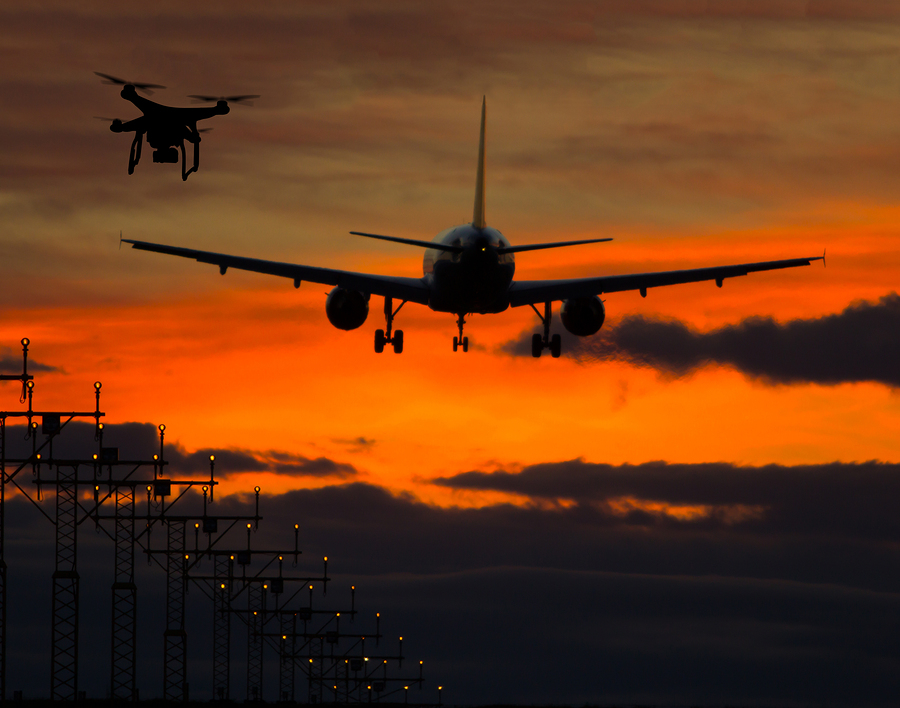Vodafone will track and intercept drones with IoT
The 4G technology aims to prevent drones from wandering into planes' flight paths


Vodafone aims to use 4G and the Internet of Things to track drones that could present a risk to aircraft.
The telecom giant has announced trials of its air traffic control drone tracking and safety system, which combines a Radio Positioning System (RPS) alongside algorithms it has developed to track and control drones that may be wandering too close to a plane's flight path.
The technology is embedded in drones via a 4G modem and SIM, allowing them to be tracked in real time from a distance of up to 50 metres.
If an operator thinks the drones are creeping too close to a danger zone, the controller can be intercepted and authorities can override the controls, landing them safely if necessary.
"This groundbreaking innovation by Vodafone will help to ensure the skies stay safe as drones become ubiquitous, everywhere," Vodafone Group chief technology officer, Johan Wibergh, said.
The popularity of drones is seen as an increasing safety threat to commercial flights, with a near miss between a drone and a plane at Gatwick Airport last summer forcing authorities to close the runway and divert flights. The government also introduced measures last summer designed to improve accountability, that mean drone owners must register their machines.
Not only could the drones be intercepted should they pose a danger to other aircraft, they could also be stopped if it seems they're being used for illegal activity, such as smuggling contraband supplies into prisons or drug smuggling, Vodafone said.
Sign up today and you will receive a free copy of our Future Focus 2025 report - the leading guidance on AI, cybersecurity and other IT challenges as per 700+ senior executives
The European Aviation Safety Agency (EASA) has collaborated closely with Vodafone on the plans to ensure the system adheres to its new rules that will regulate how drones are operated.
"The European Commission supports all trials aimed at realising our U-space vision for safe commercial drone operations in the EU there is a growing network of demonstrations and projects across the EU," deputy director general of the commission, Matthew Baldwin, said. "We look forward to hearing the results of Vodafone's work."
The drone safety system has already been tested briefly at the end of 2017, when it was used to successfully control a 0.3m wingspan, 2kg X-UAV drone around Sevilla in Spain. The further trials will take place in Spain and Germany throughout 2018. Vodafone hopes its technology will be ready for commercial use from next year.

Clare is the founder of Blue Cactus Digital, a digital marketing company that helps ethical and sustainability-focused businesses grow their customer base.
Prior to becoming a marketer, Clare was a journalist, working at a range of mobile device-focused outlets including Know Your Mobile before moving into freelance life.
As a freelance writer, she drew on her expertise in mobility to write features and guides for ITPro, as well as regularly writing news stories on a wide range of topics.
-
 What is shadow IT?
What is shadow IT?In-depth Hardware and software that isn't authorised by IT departments can leave businesses vulnerable
-
 Duo unravels massive three-tiered ‘crypto-giveaway’ botnet
Duo unravels massive three-tiered ‘crypto-giveaway’ botnetNews Researchers used a machine learning model to weed through 88 million Twitter accounts for bots and spammers
-
 Attackers target vulnerability in Cisco switches
Attackers target vulnerability in Cisco switchesNews 'Nation-state' actors leave political messages on 168,000 unpatched IoT devices

